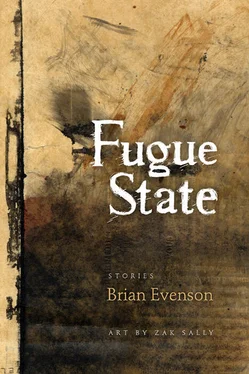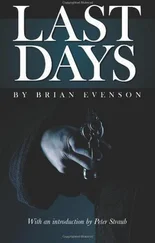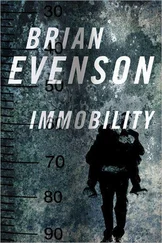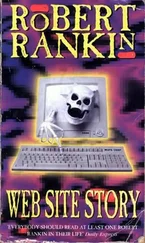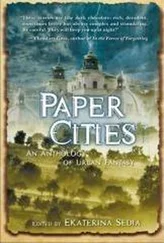He told the story of his battle with the creature and how when the water had rushed away he had seized its stony hide and not let go until it broke to pieces and the creature was dead. It was safe to return, he claimed, and then asked Hroar to give him a name. But before the mad lord could answer, the man turned his eyes back to examine the inside of his skull and died.
We built for him a pyre and laid his body upon it and burnt him, the few remnants of his skin charring and sizzling, his leg splitting from heat to reveal a strange and silky bone, quickly consumed. We prayed over him, and Hroar breathed a secret name into the flames for him to take with him and stop his wandering, and then he was gone.
As for us? We returned to the great hall to find it still thrall to the same eerie glow, to find ourselves still observed from the water by the same baleful blue eye. And yet Hroar claimed to be certain that the creature, if not yet dead, was dying, for had not the nameless stranger said as much? And did not the eye itself seem fractured now, less vivid, imbued with less light? We must, he told us, stand fast. We must trust our God and then nothing shall touch us.
We have followed him so long we do not know how to stop. And so we remain in the hall, lit by the monster’s eye. Night has come and we are deep into it. I am writing by the glow of our enemy as he bides his time and awaits his chance to destroy us. I am writing in hopes of persuading myself to stay and face this death, I am writing in hopes of persuading myself to flee. Perhaps there is a third path for me, but as of this writing I have not discovered it. When the eye shuts and the monster forces itself upon us, I shall either be gone and wandering tribeless and alone, or be beside my brothers and wandering the paths of the dead. May God, if he exists, have mercy upon us all.

After nearly ten months of struggling to write Craven Words, the introductory study of novelist Roger Craven that he had been commissioned to write by Craven himself, Sindt reached an impasse beyond which he was certain he could not progress. He destroyed the one hundred and seventy page manuscript, abandoning sheets to fire at measured intervals, and then promptly wrote Craven to inform him of what he had done. I cannot, Sindt wrote upon the back of a postcard, complete the study I agreed to write. I fear I find myself inadequate to the task of circumscribing your prose.
This note was not entirely truthful. Rather, Craven’s work, which had initially intrigued Sindt because of its concern with dislocation and possession, its insistence on postulating all human relations as a form of torture, had upon further scrutiny fallen apart. Craven’s oeuvre contained, Sindt felt, not a single original idea. During months of research and composition, he became increasingly convinced that Craven’s work amounted to nothing.
He mailed the postcard and endeavored to force Craven from his mind. After boxing up Craven’s books, he committed them to his basement. He was now Cravenless, he told himself, locking the basement door behind him.
It was thus with considerable chagrin that several weeks later Sindt discovered in the mailbox an envelope inscribed in a familiar hand. There was Craven, in his mailbox, admittedly in condensed form, beckoning to him. When Sindt opened the envelope, the letter within invited Sindt to visit, asking the favor of your company, forgiving all, asking only that you come spend a few weeks with me.
Having failed to accomplish what Craven had asked of him, Sindt had no desire to visit the writer. The visit could be nothing but uncomfortable for both of them. He wrote to excuse himself, suggesting that he could not come at that particular moment, pleading pressing business, urgent matters. Craven wrote in return that he would ask only this single thing of Sindt, that Sindt come stay for a few days immediately, and that he would demand nothing further of him ever again. As you failed to write the study you yourself repeatedly assured me you would write, Craven claimed, this is the least you can do.
To reach the house, Craven had written, one left the train station and traveled west on foot half a mile until one arrived at a taxi stand. From there, one traveled by taxi on what was referred to as the logging road, following it upward to its terminus. There one would discover a footpath that led through a stand of trees — pines — and wound about until it issued into the clearing in which one would find at last the house.
As it turned out, the trip from train station to taxi stand was in fact several miles rather than half a mile, and what Craven had referred to in his letter as the logging road was, according to the taxi driver, properly called the timber road. As the taxi climbed said road, Sindt wondered if Craven had purposefully mangled these details or if he had simply underestimated the mileage, misremembered the road. Certainly Sindt could not blame Craven for having misled him in such fashion, considering his failure to write Craven Words. But in that case, he wondered, why invite me to visit at all?
He paid the driver and then set off through the pines (what was left, apparently, of the timber the road had been named after), coming at last upon the house itself. The house was made all of stone, the roof of slate, a squat tower jutting out. It rested on relatively flat land, with some sort of greenhouse beside it, the mountain rising behind. Like something out of Craven’s work, Sindt thought, and felt a pressure start up in his head. Craven himself was waiting for him under the archway before the front door. He was wearing what could only be described as a Tyrolean walking costume, complete with lederhosen and a hunter’s cap. He seemed pleased to see Sindt, and quickly led him into the house, where he prodded him into the room he referred to as the parlor. It was an uncarpeted and drafty chamber, floored with stone flags, empty save for the two of them and two wooden chairs set before an extinguished fire.
Craven took off his hunter’s cap and scratched the crown of his head, then abandoned the hat on the mantel. He left the room, returned with drinks.
He was glad Sindt had come, he wanted Sindt to know. Salud, he said, and touched his glass to Sindt’s own. He was pleased that they could let bygones be bygones and spend the next few weeks redeveloping their friendship. He admired Sindt’s candor, the audacity of sending such a postcard, and though at first he had been, he had to admit, enraged, he soon came to realize that it would have been a mistake for Sindt to write about his work if he honestly did not feel he could master the prose. Sindt apologized again, more profusely than he had managed to do on the back of a postcard, and they both sat down, sipped their drinks. From time to time Craven would smile at him, perhaps to reassure him that all was well, that he had been sincere about his genuine forgiveness of Sindt, which made Sindt increasingly nervous.
There was, Craven said, just he and his chef in the house, just the two of them, and now, he said, there was Sindt as well. The chef would keep entirely to the kitchen, according to Craven, at most darting into the dining room to serve dinner but retreating as quickly as possible back to the kitchen. In point of fact, the chef kept his bed in the pantry — not because Craven had forced him to do so (for Craven had offered him any of the seven beds in the house) but by choice. The chef wanted his bed in the pantry — it was not a case of a master giving his servant short shrift, and one preferred not to use words such as master and servant in times such as these. It also had to be said that in the case of the chef, bed was the wrong word, as what he slept on was more of a pallet. Craven would show Sindt the chef’s pallet as part of the tour, though it would not, Craven claimed, be the highlight of the tour. He too was not in the main body of the house often, for as you can see by my garb, he said, fondling the embroidered hem of his lederhosen, I tend toward communion with nature. It would not be too much, indeed, to call him an outdoorsman, for the majority of his waking hours he spent either in the remnants of the woods or out in the greenhouse. The greenhouse was admittedly not a greenhouse but rather a modified greenhouse, something he had converted into an enclosure for the growth of the word. In it, he had written not only his most recent book but several books prior to it. It paid to keep one’s writing out of the house, at a certain distance, else the house itself become infected with the imaginative process. The imaginative process could ruin a good house in a matter of days. “This house,” Craven said, gesturing around him, “consider it your own. Your home away from home.”
Читать дальше
